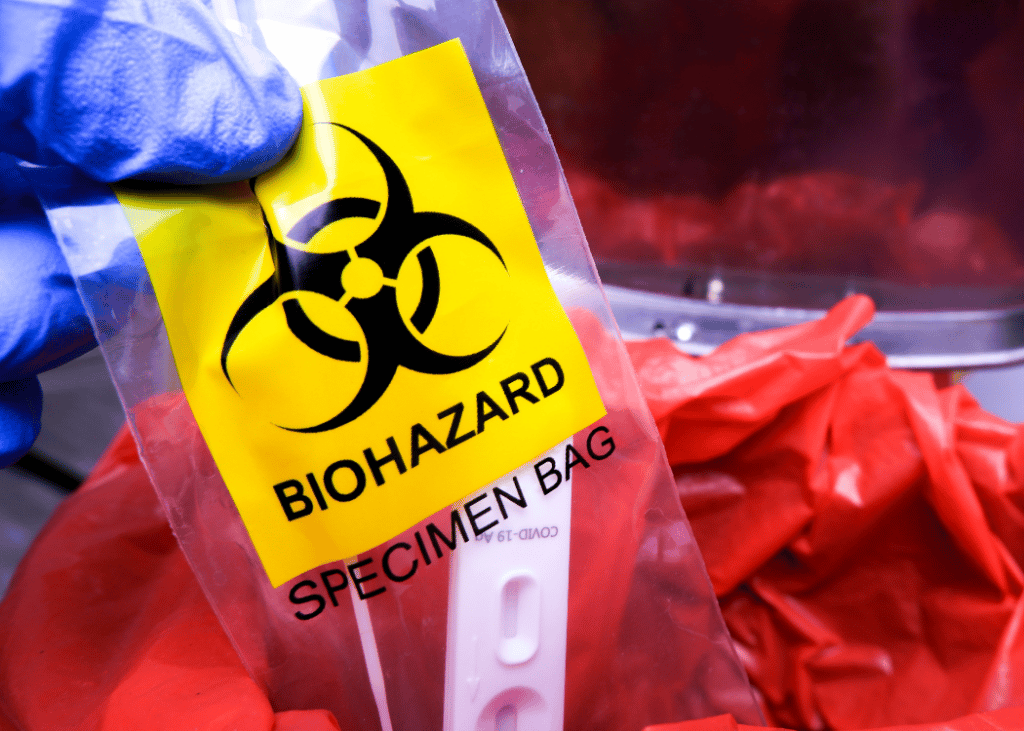Ecological Duty: The Eco-Friendly Strategy to Medical Waste Disposal
Ecological Duty: The Eco-Friendly Strategy to Medical Waste Disposal
Blog Article
Recognizing the Different Sorts Of Waste Disposal Strategies
In the world of waste management, the range of disposal methods readily available today is vast and varied, each technique offering a distinctive objective in addressing the challenge of waste disposal. click here. From recycling techniques that intend to give new life to materials, to the detailed procedures of dangerous waste administration, the landscape of garbage disposal is intricate yet essential for environmental sustainability. Comprehending the subtleties of these various strategies not just sheds light on the significance of accountable waste administration yet additionally motivates us to rethink our approach towards waste disposal in a quickly progressing globe

Recycling Methods
Recycling approaches are vital for sustainable waste monitoring methods in both commercial and residential setups. medical waste removal near me. By executing reliable recycling techniques, a significant quantity of waste can be diverted from land fills, conserving all-natural resources and lowering the environmental influence of production procedures
In houses, curbside recycling programs play an important duty in encouraging houses to separate recyclable products from basic waste. Materials such as paper, plastics, glass, and steels can be sorted and gathered for handling into new items, decreasing the demand for basic materials and energy-intensive manufacturing procedures.
Industrial facilities also rely upon recycling approaches to decrease waste generation and promote a round economic situation. By executing closed-loop systems, services can recycle materials within their production procedures, lowering expenses and environmental impact. medical waste removal. Furthermore, commercial recycling programs often involve partnerships with specialized reusing centers to ensure that materials are appropriately arranged, processed, and reintegrated into the supply chain
Composting Methods

Oxygenated static heap composting includes blending organic waste products in a large heap and frequently turning it to make sure proper aeration. This strategy is well-suited for smaller-scale procedures and households.
In-vessel composting entails placing organic waste in a shut container with controlled problems for temperature level and oygenation. This method is reliable for managing food waste in metropolitan locations. Windrow composting consists of creating long rows of organic waste and on a regular basis transforming them to promote decomposition. This method is commonly made use of in farming setups.
Land Fill Disposal
Land fill disposal is a frequently used technique for managing waste that can not be recycled or composted. Methane gas, a byproduct of decaying natural waste in land fills, is commonly gathered and used as a source of eco-friendly power. Efforts to reduce dependence on garbage dumps include promoting waste decrease, recycling, and exploring alternative waste disposal methods to decrease the ecological footprint linked with typical garbage dump disposal practices.

Waste-to-Energy Incineration
Incineration of waste for power generation is a method significantly being considered as an option to typical landfill disposal strategies. Waste-to-energy incineration involves the burning of waste materials at heats, typically in specialized facilities created to generate electrical power or warm via the process - click here. This strategy not only minimizes the volume of waste that would otherwise be predestined for landfills but likewise harnesses the warm generated throughout incineration to create energy
Among the vital benefits of waste-to-energy incineration is its ability to produce power while minimizing the environmental effect contrasted to standard landfill disposal methods. By converting waste into energy, this technique aids in reducing greenhouse gas emissions and reliance on fossil fuels for energy generation. Furthermore, waste-to-energy centers are furnished with innovative air contamination control modern technologies to mitigate potential environmental pollutants released during the combustion process.
Hazardous Waste Management
.jpg)
Considering the critical importance of responsible waste monitoring techniques, especially in the realm of environmental sustainability, the emphasis currently moves towards the intricate domain name of Contaminated materials Administration. Contaminated materials poses substantial dangers to both human health and the environment, demanding customized handling and disposal methods. Common instances of contaminated materials consist of chemicals, batteries, pesticides, and electronic waste.
Hazardous Waste Monitoring involves the recognition, collection, transportation, therapy, and disposal of products considered possibly unsafe or damaging. This process calls for adherence to stringent regulations and standards to alleviate adverse influence on ecosystems and public health and wellness. Various approaches are used in managing unsafe waste, consisting of recycling, secure land fills, encapsulation, and chemical treatment.
Appropriate Contaminated Materials Monitoring is important for stopping contamination of soil, water resources, and air pollution. It is crucial for sectors, laboratories, health care facilities, and other generators of contaminated materials to execute durable management strategies, training programs, and emergency situation response intends to ensure the risk-free handling and disposal of these products. Failure to take care of dangerous waste suitably can have far-reaching consequences, highlighting the relevance of responsible and thorough techniques in this area.
Final Thought
In verdict, waste disposal strategies play an essential function in managing and minimizing the impact of waste on the setting. It is vital click for more info for people and markets to recognize the various waste disposal methods offered and choose the most appropriate approach for lasting waste administration.
In the realm of waste management, the array of disposal strategies readily available today is substantial and differed, each method offering a distinctive function in dealing with the challenge of waste disposal. click here. From recycling methods that intend to offer new life to materials, to the intricate procedures of harmful waste management, the landscape of waste disposal is complex yet critical for ecological sustainability. Comprehending the nuances of these various methods not only drops light on the significance of responsible waste monitoring however additionally triggers us to rethink our strategy in the direction of waste disposal in a rapidly advancing world
Initiatives to minimize reliance on garbage dumps include advertising waste reduction, reusing, and exploring different waste disposal methods to minimize the ecological footprint connected with traditional land fill disposal practices.
It is crucial for individuals and sectors to understand the different waste disposal strategies offered and pick the most suitable approach for sustainable waste administration.
Report this page